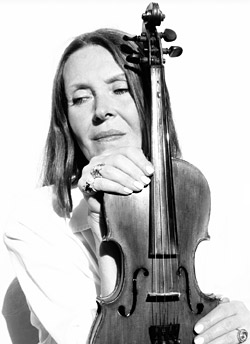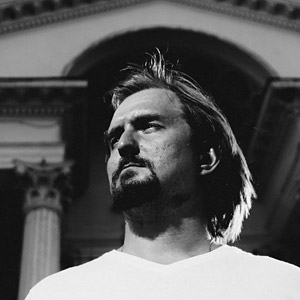
Electronic english version since 2022 |
The newspaper was founded in November 1957
| |
|
Number 36 (4633) |
Dvorak. Serenade for Strings
On 25 September, the fourth concert will be held in the JINR Cultural Centre "Mir" - to learn about the musical heritage of the JINR Member States. The composer, whose music will be performed this evening, is considered one of the most famous Czechs of all time, his compositions, combining classical traditions and original features of domestic music, are appreciated all over the world, since the composer's musical ingenuity is as rich as the beauty of his melodies is unique. We talked about the upcoming concert with the Director of the Dubna Symphony Orchestra Natalia Castro.
 Natalya Alexandrovna, a new creative season has started and along with it the follow up of the musical history "Introduction through Music". You have dedicated the next concert of the cycle to the Czech Republic. As it usually happens, are you coming from the country or from the composer?
Natalya Alexandrovna, a new creative season has started and along with it the follow up of the musical history "Introduction through Music". You have dedicated the next concert of the cycle to the Czech Republic. As it usually happens, are you coming from the country or from the composer?
Usually from the country, but in this case - from the composer. Back in July, when preparing the program for the City Day, we tried to find a special repertoire for an open-air performance. Special, because we were given the theme of a "manor" concert, a concert in the park, creating an atmosphere of comfort and sophistication. It was then, in a series of many other masterpieces, that we performed the waltz from Antonin Dvorak's Serenade for string orchestra and at the end of the program we decided to play this whole composition for the Dubna audience! Therefore, in September we have Antonin Dvorak, Czech Republic, learning about the musical culture of this country through one of the most beautiful compositions in the world!
Antonin Dvorak is a representative of romanticism. As a musician, what emotions does his music evoke for you?
It must be admitted that for many of us the word "romanticism" relates to such cliche phrases as "romantic evening", "romantic mood" and is associated with a candlelit dinner, champagne, roses and appropriate music. It's not like that for me, of course. And let me remind you that from the point of view of the era in literature, music and art in general, romanticism, like any other trend, is primarily a reflection of life, a reflection of time. And time then gave the experience of the French Revolution that on the one hand, led to a tremendous upsurge of spiritual strength and on the other hand, to deep disappointment, when the principles of "freedom, equality and fraternity" remained a utopian dream. And the artists of the new time, deceived in the best hopes, expressed their protest against the new order of things, revealing such a sphere of feelings as the boiling of passions, the predominance of feelings over reason, the highest degrees of excitement, passion, brilliance, the depth and variety of spiritual experiences, the complex inner life of people. Everything through a personal prism! None of the composers of other eras has got such "intimate pages of the diary" as the composers-romantics. And the music of Antonin Dvorak as a true romantic for me is, first of all, extremely lively, heartfelt, tiredly beautiful, sometimes disturbing, sometimes comical, sometimes solemn and always very personal, with deep national roots, of course, because the Czech people are amazingly musical, there is even a saying: "Whatever Czech - a musician"...
The great son of the Czech people - this is how compatriots affectionately call the wonderful composer, one of the founders of the national school of composition. Indeed, he plunged into fruitful composer work only after becoming an organist in the church. I wonder what was the moment for the beginning of writing?..
Yes, this question arises naturally, as Dvorak began to study music professionally only at the age of 16. Before that, although he had taken violin, viola and then organ lessons, he still spent most of his time in the butcher's shop of his father, who wanted to transfer his business to him. And after all, what sensitivity and far-sightedness Antonin's father showed when he agreed to send his son to Prague to an organ school, apparently yielding to his endless requests! There, the young musician suffered from lack of money and, as critics write, composed a lot. It can be assumed that the need for money served as a pretext for writing. But I must admit that the reason is not at all the main thing. And the main thing is that Dvorak really was a genius! He wrote quickly, he admitted that "hands do not keep up with thoughts" and complained about the lack of titles for his compositions. In his opinion, all the poetic and original titles had already been used by other composers. And by the age of thirty, he became so famous that a queue lined up for his issued compositions in music shops and concerts were held with the same full house.
We know that under the influence of P.I.Tchaikovsky Dvorak visited Russia in 1890 and conducted orchestras performing his music. What is known about this period of his creative activities?
In 1888 Dvorak met Tchaikovsky. It was a significant meeting of two outstanding Slavic composers, almost the same age that entered the peak of their creativity. "You are a great artist," Tchaikovsky wrote to Dvorak. And the latter shared with him his thoughts about the music of "Onegin": "I am happy to admit that your opera made a great and deep impression on me - exactly the kind that I always expect from a real artistic creation. This is a wonderful composition, full of warm feelings and poetry, developed to the smallest detail, in short: this is music that attracts and penetrates so deeply into the soul that it cannot be forgotten." Dvorak and Tchaikovsky had a close friendship for many years. It is not surprising that immediately upon returning to his homeland, the author of "Onegin" began to fuss about calling Dvorak on tour to Russia. It took place in 1890; in the author's concerts that were held with great success in Moscow and St. Petersburg, Dvorak performed the First and Third Symphonies, Symphonic Variations on his own theme, Slavic Rhapsody and his other compositions.
Please, tell us about his most famous compositions and, of course, about the Serenade for Strings that will be performed for our audience.
The composer is famous when his oeuvre is closely, inextricably related to the culture of his country, the uniqueness of intonations, color, deep national origins. Antonin Dvorak adored the folk melodies of his native Czech Republic, weaving them into the melodic fabric of his best compositions: the Seventh Symphony that is regularly played all over the world, an unsurpassed cycle of cello concertos. Even the main "hit" - the Ninth Symphony "From the New World" - was indirectly dedicated to the composer's homeland: he wrote it in 1893 in the United States, but ... homesick.
Speaking about the Serenade for Strings that the Dubna Orchestra will perform in the upcoming concert, I am not sure that I can convey the charm of this music in words. It is known that Dvorak created it in 1875 - at the happy time of the first creative victories and family harmony that is felt in the atmosphere of his music. Many of us hear an elegant tone in it, suggesting a graceful life, accompanied by a "serenade" in the magnificent home of a certain 18th century aristocrat...
 Sergey Pospelov will conduct again, what are your creative plans for the upcoming season?
Sergey Pospelov will conduct again, what are your creative plans for the upcoming season?
I would really like to see everything planned come true. There are proposals for the orchestra to perform again in the halls of Moscow, in the concert hall of the Cathedral Chamber with a programme of two piano concertos by Chopin. Our May experience of performing in this prestigious concert hall did not go unnoticed. The serious program performed by Sergey Pospelov (on the photo) as a soloist with the full symphonic composition of the DSO made a huge impression on the Moscow audience and we, of course, would like to perform there again. Interesting projects that combine various genres, including the artistic word, painting, are currently prepared for the Dubna audience, we also prepare different formats of our programs and compositions.
Natalya Alexandrovna, let's tell readers about the new Music Talk project. How do you see it at its best?
Yes, this is just one of our new formats. The idea is that classical, academic music is our intellectual heritage and it is interesting not only to listen to it, but also to learn a lot of new things for a deeper and more complete understanding of the idea, this is important, believe me! For this, a dialogue between musicians and the audience in the format of a concert in a lively and relaxed atmosphere is required. But this is the topic of the next interview, I think!
Interviewed by Eleonora Yamaleeva.
Photo from the personal archive of Natalia Castro